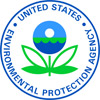Denali Water Solutions LLC to Pay $610K for Alleged Illegal Sewage Sludge Application

LENEXA, KAN. (NOV. 12, 2024) – Denali Water Solutions LLC of Russellville, Arkansas, has agreed to pay a $610,000 civil penalty as part of a settlement with the federal government for violations of the Clean Water Act (CWA) in two Western states.
According to the U.S. Environmental Protection Agency (EPA), the company provides land application services of sewage sludge derived from wastewater treatment facilities, also known as biosolids. EPA Region 7 is the lead region for all CWA biosolids cases across the nation.
Biosolids are regulated by EPA under the federal Clean Water Act. Pursuant to the regulations, biosolids producers and land appliers are required to collect pollution data on biosolids before applying it to land, and land appliers are required to apply biosolids at a rate that limits the amount of nitrogen to what the crop or vegetation can utilize.
“EPA’s biosolids regulations protect wetlands, streams, rivers, and groundwater from harmful sewage sludge pollution,” said EPA Region 7 Administrator Meg McCollister. “This settlement demonstrates EPA’s commitment to watershed and groundwater aquifer health, which in turn protects wildlife habitat and drinking water sources.”
EPA says that since at least 2016, Denali repeatedly land-applied sewage sludge to farm fields in Arizona and southern California at levels that exceeded the nitrogen needs of the crops in those fields and repeatedly failed to obtain the information necessary to determine the correct amount of sewage sludge to apply. Such alleged violations can lead to nitrogen and other pollutants migrating to groundwater or running off into nearby surface waters.
Excess nitrogen in drinking water can be harmful to infants or young livestock. In surface waters, too much nitrogen can lead to overgrowth of aquatic plants, increased harmful algal blooms, decreased light penetration, and reduced levels of dissolved oxygen. Each of these conditions makes it difficult for fish to live and people to swim.
In mid-2024, Denali ceased land application activities in Arizona and California. However, the settlement requires Denali to follow a specific “Soil Sampling and Agronomic Rate Calculation Protocol” if Denali resumes land application in the region. To ensure future compliance with the law, Denali will be required to sample soil in the fields where it will apply sludge and perform site-specific calculations to determine the amount of sludge it can apply to those fields without risking groundwater contamination.
EPA estimates that by ceasing land application and complying with the settlement terms, the excess application of 5.8 million pounds of sewage sludge will be eliminated annually.
The proposed consent decree was filed in the U.S. District Court for the District of Arizona. The consent decree is subject to a 30-day comment period. Information on how to provide comments and a copy of the proposed consent decree are available on the Justice Department’s Proposed Consent Decree webpage.
More information on this enforcement action is available on EPA’s Denali Clean Water Act Settlement Summary.
- Learn more about EPA’s Biosolids program.
- Learn more about EPA’s enforcement of the Clean Water Act.
# # #
Learn more about EPA Region 7
View all Region 7 news releases
Visit the Region 7 Media page
Connect with EPA Region 7 on Facebook and Instagram
Follow us on X: @EPARegion7
